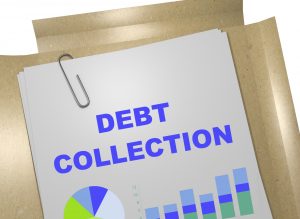 Our financial status can drop in an instant, especially when we borrow money. Credit cards, loans, and other forms of assistance can backfire and hurt you. In America, total consumer debt is nearly $14 trillion.
Our financial status can drop in an instant, especially when we borrow money. Credit cards, loans, and other forms of assistance can backfire and hurt you. In America, total consumer debt is nearly $14 trillion.
If you don’t know how to deal with debt collectors when you can’t pay, you may feel like you’re in a corner.
You can find out what to do if you’re in this situation by reading on.
Table of Contents
You Don’t Have to Submit to Pressure
Debt collectors often use frequent and relentless methods of contacting you to inform you of debt. Their only goal is to collect the original debt if they can and offer other forms of solutions.
Having debt is a shameful situation for most, and collectors prey on this fact. They use a form of urgency to get get to you pay off a balance to prevent negative consequences.
Many end up putting themselves in more debt just to clear the debt. When people may not have money, some choose to take out more loans or borrow money. You should never give in to pressure you to receive and resort to this.
If you can’t pay, don’t pay. Even paying a portion only provides collectors with more of your personal information. This action also confirms you assume the debt is yours. Instead, ask for data on the debt and state you will call back.
Know And State Your Rights
You will receive a notice of intent to collect once a debt is considered delinquent (30 days). When the original creditor sells debt to another party, information can get construed. Inaccuracy and errors are common. You may be told an amount that is more than what you truly owe.
It is well in your rights to verify the facts on a debt. You may also ask for a letter of validation. The Fair Debt Collection Practices Act protects you from predatory collection methods. If there is anything you do not agree with, you can challenge the debt.
If you are dealing with collectors who contact you nonstop, you don’t have to put up with it. You can state how and when they may contact you, if at all.
Weigh Your Options
Everyone’s financial situation is different making the options to consider when you cant pay different as well. If you suspect the debt will be long-term, it may be better to do nothing and have collectors stop contacting you.
There is always a chance a collector will sue you to get the money owed. It’s best to do this is if you are “judgment proof.”
If you can’t pay the full balance, but can pay a percentage, you should negotiate with them. Remember you want to keep everything in writing and verify the payment.
You may be in a situation where you can file for bankruptcy. If you are uncertain what course of action to take, it’s best to speak with a lawyer.
How to Deal With Debt Collectors When You Can’t Pay

Knowing how to deal with debt collectors when you can’t pay will prevent you from having more stress and financial burden. If you don’t have the means to pay and can’t get help from others who won’t slap you with interest fees, don’t attempt to deal with collectors.
You may have to wait it out although it will impact your credit score. Maybe you can strike a good deal then. It’s best to lay low until you know what you can do.
If you found this article helpful, check out other financial-related blogs here on the website.